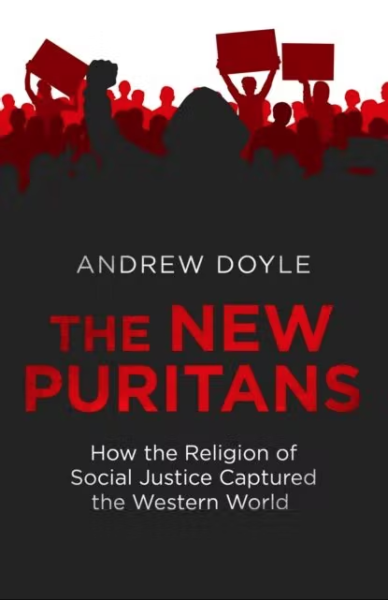In The Critic, Christopher Snowden praises Doyle’s recent book:
How wrong I was. As Andrew Doyle shows in The New Puritans, it took only a few years for Critical Social Justice to infect the corporate world, government agencies and the media. Most worryingly for a system of thought that favours “lived experience” over objective truth, it became pervasive in higher and lower education.
Doyle had been warning about this for years and kept the receipts. He has a long list of examples of institutional idiocy and persecution to show that there is more to concerns about the “woke brigade” than a right-wing panic over a handful of crazies.
So divorced from reality is Critical Social Justice, that unintentional humour often arises: the CEO of Stonewall accusing lesbians who refuse to date trans women of “sexual racism”; activists becoming uncomfortable with the phrase “trigger warning” because it invokes guns; an American professor of education asserting that “on many levels, mathematics itself operates as whiteness” (how many levels?).
[…]
Those of us who will never be intimately acquainted with the Frankfurt School owe a debt to Doyle for calmly dissecting the anti-liberal worldview. Doyle himself is a left-wing homosexual who is often portrayed as a Nazi on social media for defending free speech and mocking the “entitled demands and infantile tantrums” of the woke mob.
Borrowing a phrase from Isaiah Berlin, he argues that we are living through a “Counter-Enlightenment” led by “conformists with pretensions of radicalism”. The woke ideology is not a natural extension of left-liberalism, he says, nor of political correctness. It is something far more sinister, regressive and authoritarian. In its Year Zero approach to knowledge and history, it is almost nihilistic.
Academically rigorous but never pretentious, The New Puritans is virtually unimprovable as an analysis of this chilling social phenomenon. It begins and ends with the Salem witch trials of 1692–93, when two vindictive children sent 20 people to their deaths on the basis of nothing more than “spectral evidence” (AKA “lived experience”). The mania ended as quickly as it began when the adults in the room simply stopped believing them.
Doyle believes the current madness will end the same way if we can return to critical thinking and put a stop to ad hominem attacks. Good luck with that. Most of the people he is writing about would sooner burn this book than read it.




